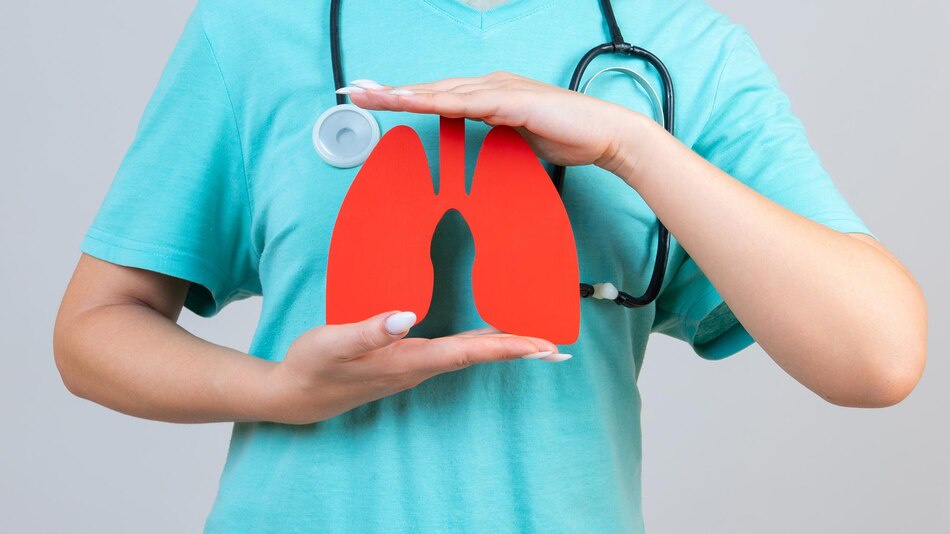Being able to breathe is essential for maintaining general health because breathing allows the body to absorb oxygen and expel carbon dioxide. However, many variables can impair lung health and result in different respiratory problems, including pollution, smoking, respiratory infections, and genetic predispositions. Acquiring the ability to identify symptoms that can point to underlying lung issues is essential for prompt diagnosis and therapy. We'll go over six important symptoms in this post that call for a consultation with a pulmonologist—a physician who specializes in the diagnosis and treatment of lung disorders.
1.Chronic Cough:
You shouldn't disregard a cough that continues for longer than three weeks. Coughing is a normal reflex to get rid of allergens from the airways, but a persistent cough may indicate a respiratory problem. It can be a sign of lung cancer, pneumonia, chronic bronchitis, or asthma. A pulmonology doctor can perform a comprehensive examination using imaging studies, lung function testing, and other diagnostic techniques to identify the reason behind the cough. If potentially dangerous illnesses are to be prevented from getting worse, early identification and treatment are crucial.
2.Shortness of Breath:
Often referred to as dyspnea, is the sensation that you are not breathing deeply enough or are having trouble breathing. It might be brought on by physical exertion, underlying medical issues, or environmental factors. It can vary in severity. Breathlessness that occurs sometimes might not be a problem, but if it persists or gets worse, medical treatment is necessary. Breathlessness can be brought on by illnesses such as asthma, heart failure, pulmonary hypertension, and chronic obstructive pulmonary disease (COPD). A pulmonologist can perform diagnostic procedures to determine the underlying reason and suggest a suitable course of action.
3.Wheezing:
When breathing, usually during exhale, wheezing produces a high-pitched whistling sound. It frequently occurs in conjunction with constricted or obstructed airways, as in bronchitis, asthma, COPD, or allergic reactions. Additionally, wheezing may indicate a more serious illness like a pulmonary embolism or a foreign item stuck in the airway. It's critical to get medical help right away if you have wheezing, especially if it's followed by breathing difficulties or chest tightness. In order to identify the underlying cause of wheezing and suggest the best course of action, a pulmonologist can conduct imaging scans, lung function testing, and other assessments.
4.Chest Pain:
There are a number of potential reasons of chest pain, such as heart disorders, gastrointestinal disorders, and musculoskeletal difficulties. Nevertheless, it may also indicate lung-related conditions including pleurisy, pneumonia, or pulmonary embolism. It's critical to get medical attention right away if you have sudden or severe chest discomfort, especially if it's followed by breathing difficulties, blood in the cough, or other worrisome symptoms. A top pulmonologist in Chennai at VR Specilaity Clinic can evaluate your symptoms, perform diagnostic procedures, and work with other medical professionals as needed to identify the source of your chest discomfort and create a suitable treatment plan.
5.Chronic Fatigue:
This term describes weariness, weakness, or exhaustion that doesn't go away with rest and interferes with day-to-day activities. In addition to being a sign of underlying medical issues, stress, sleep disturbances, and other variables, exhaustion can also be an indication of lung disease. Fatigue can be caused by conditions like sleep apnea, pulmonary fibrosis, or COPD that limit lung function and lower oxygenation. You must see a pulmonologist for assessment and treatment if you have chronic or unexplained fatigue, especially if it is accompanied by other respiratory symptoms.
6.Recurrent Respiratory Infections:
Repeated or frequent respiratory infections, such as sinusitis, pneumonia, or bronchitis, might be a sign of weakened immunity or underlying lung conditions. Because diseases like COPD, asthma, or bronchiectasis impair the airways' ability to fight off infections, they raise the risk of respiratory infections. Without specialist knowledge and diagnostic equipment, many respiratory disorders can have ambiguous symptoms or mirror other health problems, making an accurate diagnosis difficult. Pulmonologists are essential in the early diagnosis and detection of lung conditions because they do thorough examinations.
In addition, certain people are more susceptible to respiratory infections due to smoking, exposure to chemicals in the environment, or work-related exposures. You should see a pulmonologist for a thorough assessment if you frequently get respiratory infections, particularly if they're severe or don't go away with conventional therapy. To choose the best course of action, they can evaluate your immune system, lung function, and any possible underlying illnesses.
Conclusion:
In summary, maintaining good respiratory health is critical to general health and quality of life. Acquiring the ability to identify symptoms that can point to underlying lung issues is essential for prompt diagnosis and therapy. It is imperative that you see a best pulmonologist hospital in Chennai like VR Speciality Clinic for assessment and treatment if you encounter any of the symptoms listed above. For those with respiratory problems, early diagnosis and treatment can help avoid complications and enhance results. Never forget that putting your lung health first is an investment in your long-term health.


No comments yet